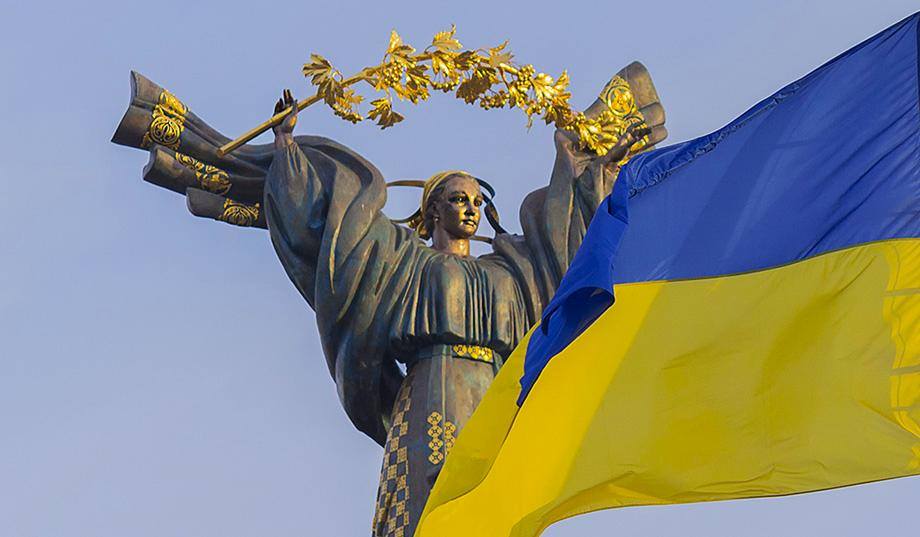The year 2017 was not the easiest one for Ukraine. The conflict in the eastern part of the country continues, the annexation of Crimea remains unchanged. Some reforms have advanced, however, the majority of experts are convinced that the state has not reached the point of no return in reforming and that the anti-corruption reform clearly stalls. UCMC takes a look back at 2017 to recall the country’s main achievements and defeats.
The war keeps killing
The year that is coming to a close has seen the most intense attacks since the beginning of the conflict. In 2017, the OSCE Special Monitoring Mission to Ukraine (SMM) has registered a total of 400 thousand ceasefire violations and about 4,000 incidents of placing Minsk-proscribed weapons in violation of the designated withdrawal sites. This year eighty-five civilians, including one OSCE SMM monitor, have been killed as a result of combat actions and explosions of mines and unexploded ordnance, 384 persons have been wounded. According to the General Staff of the Ukrainian Armed Forces, as of December 18, 2017, the Ukrainian Army lost 191 servicemen (the number includes those killed in action, missing in action and those in captivity) as well as 174 wounded.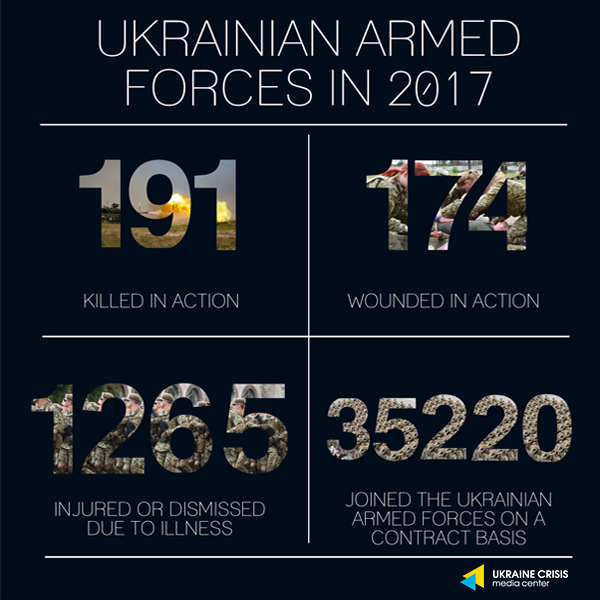
The US to provide weapons to Ukraine
In late December 2017, it became known that the United States will provide Ukraine with “enhanced defensive capabilities”. The weapons will be provided to Ukraine to fight against Russia-backed militants in the eastern part of the country. “U.S. assistance is entirely defensive in nature, and as we have always said, Ukraine is a sovereign country and has the right to defend itself,” the U.S. Department of State said in a statement. US TV channel ABC News cited State Department sources to report that President Donald Trump was expected to approve the sale of anti-tank missiles to Ukraine. According to the sources, the US is to supply to Ukraine 210 antitank missiles and 35 launchers worth of 47 million US dollars. Earlier, the administration of US President Donald Trump approved the authorized commercial sale of M107A1 sniper rifles and ammunition to Ukraine worth of 41,5 million US dollars.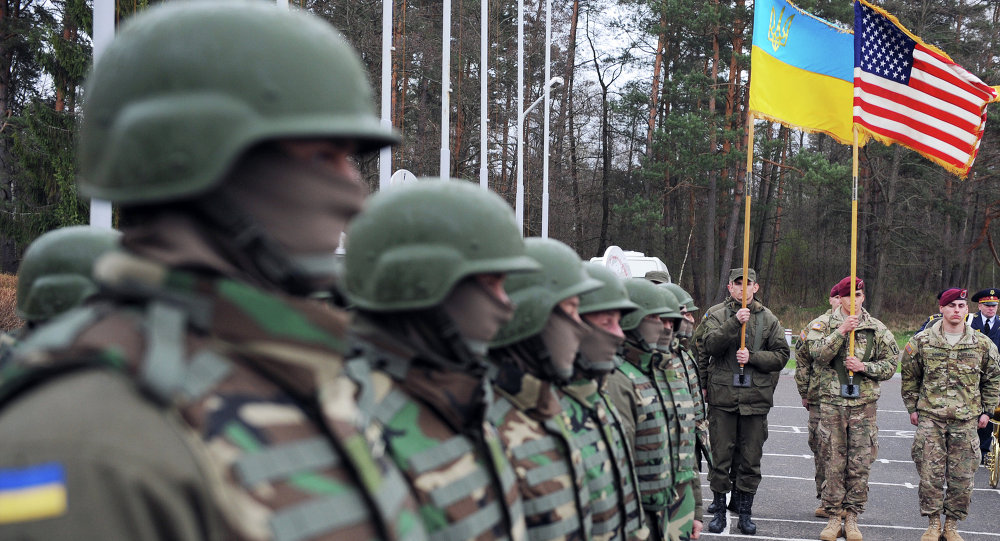
Sanctions and negotiations on the peacekeeping mission
EU and US sanctions. In December 2017, leaders of the EU member states extended the economic sanctions against Russia for another six months. The extended sanctions will come into effect on February 1, 2018, the restrictions in question concern cooperation with Russia in the financial, defense, and energy sectors. The US has also reinforced the sanctions against Russia.
Peacekeeping mission. Over the last four months of 2017, active discussion on the possibility of deploying UN peacekeeping forces to Donbas is ongoing. On September 5, following the meeting of Kurt Volker, the US Special Representative for Ukraine, with Vladislav Surkov, Russian president’s aide, Vladimir Putin supported the idea of peacekeepers’ deployment to the Russia-Ukraine conflict area in Donbas. However, he insisted that the peacekeeping contingent must be deployed to the contact line only. Ukraine spoke against such a scenario. The official Ukrainian position is that the peacekeepers must be deployed to the entire occupied area in Donbas, including at the Ukrainian-Russian border instead of the contact line only.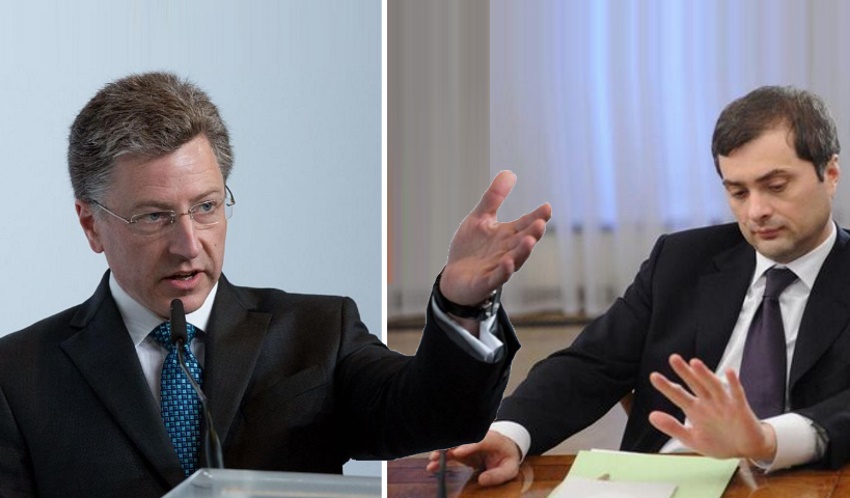
Despite the efforts of the international community the compromise has not been achieved yet. On December 27 Deputy Minister of Foreign Affairs of the Russian Federation Grigoriy Karasin said that Russia will not let UN peacekeepers access the entire territory that was seized by militants in Donbas including the Ukrainian-Russian border. He emphasized again that Russia’s position is that the UN peacekeepers must only provide security for OSCE monitors.
First large-scale exchange of prisoners of war in two years
On December 27, 2017, a major exchange of prisoners took place in Donbas region for the first time in the past two years.
This was a really long-awaited event because some of the Ukrainians held captive by militants had been waiting for years: some got captured in 2014, others – in 2015, including the “cyborgs” from Donetsk airport.
Initially, the parties agreed to an exchange of 74 for 306. Russia-backed militants released 73 prisoners of 74, instead, Ukrainian negotiators handed over to the so-called “DPR” and “LPR” 233 people instead of 306.
The difference in numbers is due to the fact that some people simply refused to go to the other side – one woman refused to return to the government-controlled territory, and a number of prisoners refused to return to the temporarily occupied territories.
The exchange process took place near the occupied Horlivka in Donetsk region at Maiorske checkpoint, the operation of which was suspended for that time.
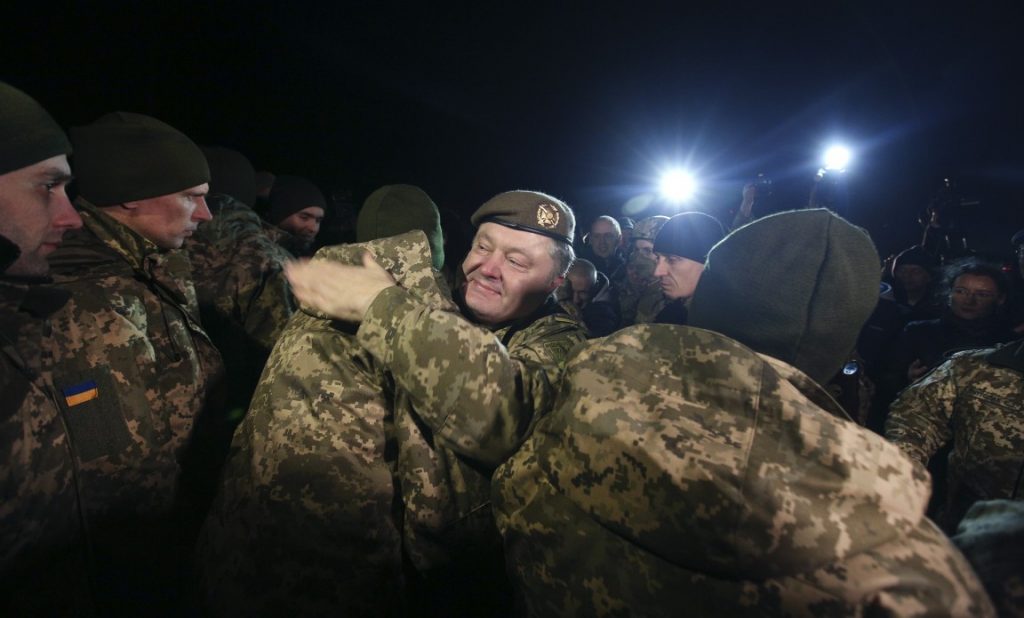
The so-called “DPR” released 54 Ukrainian soldiers, “LPR” released 5 more; 14 more prisoners were civilians. Nevertheless, according to the SBU, even after the exchange Russian proxies are still holding captive 103 more Ukrainians.
Reforms in Ukraine as seen by experts and the wider society
Reform progress in Ukraine is not sufficient. Despite some obvious results, many tasks planned for this year were not achieved. It is acknowledged by both representatives of the international community and Ukrainian experts and civic activists. Same results were demonstrated by the public opinion poll that the Ilko Kucheriv Democratic Initiatives Foundation and the Reanimation Package of Reforms jointly presented for an expert discussion earlier this month. The wide public assesses the overall reform progress as unsatisfactory. Forty-one percent of the respondents are of the opinion that no reforms have been made at all and that bureaucrats and civil servants resist changes the most. Anticorruption reform is named key on the reform list. Only one percent of the interviewed say the fight against corruption in the country has been successful, while 86 percent say it has brought no results.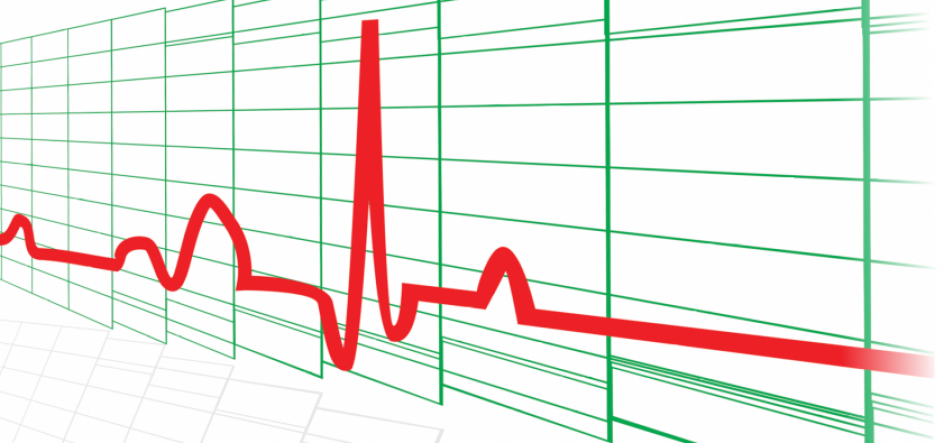
Experts of the Chatham House, authors of the report “The Struggle for Ukraine” also agree that the country’s main problem still to be overcome is corruption. The report describes Ukraine’s achievements since Euromaidan as well as the areas where the authorities do not meet the expectations of the society. In the experts’ opinion, the positive changes include institutional changes in the government and in the judiciary, a series of constitutional changes, and the start of other sectoral reforms. An important change in the political system is marked by new politicians entering the government, by the governance reform as well as by the competition-based selection to the positions in civil service, judiciary and anti-corruption sector.
Lack of justice
The lack of considerable progress in the judicial reform made Ukrainians live through the deficit of justice in 2017. The long-awaited court ruling for the persons involved in the killing of Maidan activists in Kyiv has resulted in nothing. After a three-year-long trial Shevchenkivskyi district court of Kyiv issued a four-year conditional sentence to the head of a group of “titushky” thugs Yuriy Krysin for his involvement in the murder of Viacheslav Veremiy, journalist of “Vesti” newspaper, near the Mykhailivsky square in Kyiv at night on February 19, 2014.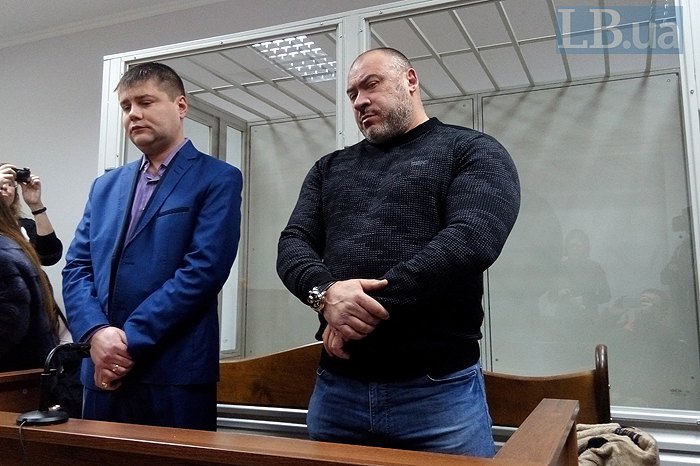
It is not the first case when impunity and lack of justice show up in the Maidan-related cases. Over three thousand crimes are being investigated in the context of Maidan-related events, search warrants have been issued for 110 suspects, however, only one person has been actually sentenced. Ahead of the 4th anniversary of the February 2014 events, it comes obvious that investigation of the crimes committed against the Maidan activists has not become a priority for the state.
Visa-free regime with the EU
According to a public opinion poll conducted by the Ilko Kucheriv Democratic Initiatives Foundation, the key political success of the year 2017 in Ukraine is the establishment of the visa-free travel regime with the EU, 26 percent of the interviewed responded accordingly. Introduction of the visa-free travel with the EU was assessed positively by 83 percent of those who mentioned the event in their answers.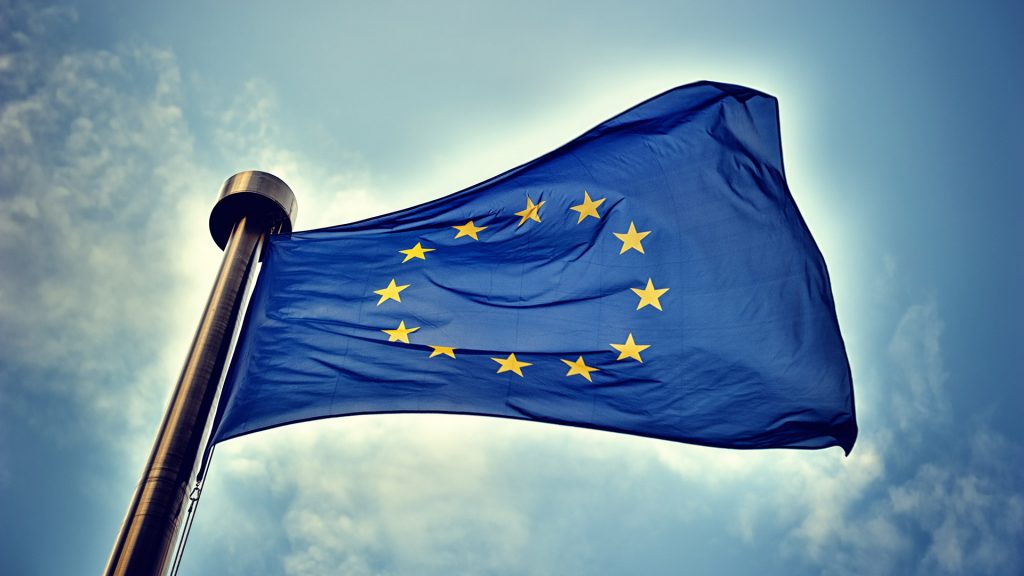
In the first three months after the visa-free regime came into force – from June 11 to September 11 – 5,8 million Ukrainians (14,5 percent of the 40-million Ukraine’s population) traveled to the EU. The overall number of Ukrainians who entered the EU with biometric passports in line with the requirements of the visa-free travel reached 1,4 million persons. Out of this number, only 235,000 (six percent of the population) enjoyed the advantages of the visa-free travel in the first three months. Thus, 87 percent of biometric passport holders were traveling with visas, while 17 percent traveled visa-free. The number of Ukrainians who traveled to the EU in summer 2017 increased by 10 percent in comparison with the previous year. In the first six months since the visa-free regime with the EU came into force, 355,000 Ukrainians enjoyed the simplified travel system, reports the State Border Guard Service of Ukraine.
Ukrainian cinema in 2017: from a niche product to an industry
In April 2017 the Law “On the state support to the film industry in Ukraine” came into force, it paves the way to domestic film production and co-production and is set to simplify the fight against piracy. Ukraine has budgeted over one billion hryvnias (30 million euro) for development of the domestic film production in the state budget for 2018, it is almost twice as much as the year before. In autumn, Ukraine’s Parliament passed two laws: one frees Ukrainian film production companies from VAT payment until 2023, another one lifts customs duties for imports of the filmmaking equipment.
The year 2017 saw over 30 Ukrainian films released, they differ in the genres and topics ranging from comedies and fantasy films to war drama and historic films. High box office earnings were collected by the films “Chervony” by Zaza Buadze, “DZIDZIO Contrabass” by Oleh Borshevsky and “Cyborgs” (Kiborhy) by Akhtem Seitablayev. It is noteworthy that two films co-produced with Ukraine were nominated to Oscars by the countries – producers. They are the “Frost” film by Sharunas Bartas from Lithuania and “The Line” by Peter Bebjak from Slovakia. Thanks to the system managed by the Ukrainian State Film Agency crafted to support domestic film production young film directors have received access to the state financing and were thus able to present their debut works, including “Falling” by Maryna Stepanska as well as short films like “Technical Break” by Philip Sotnychenko and “Swing” by Valeria Sochyvets.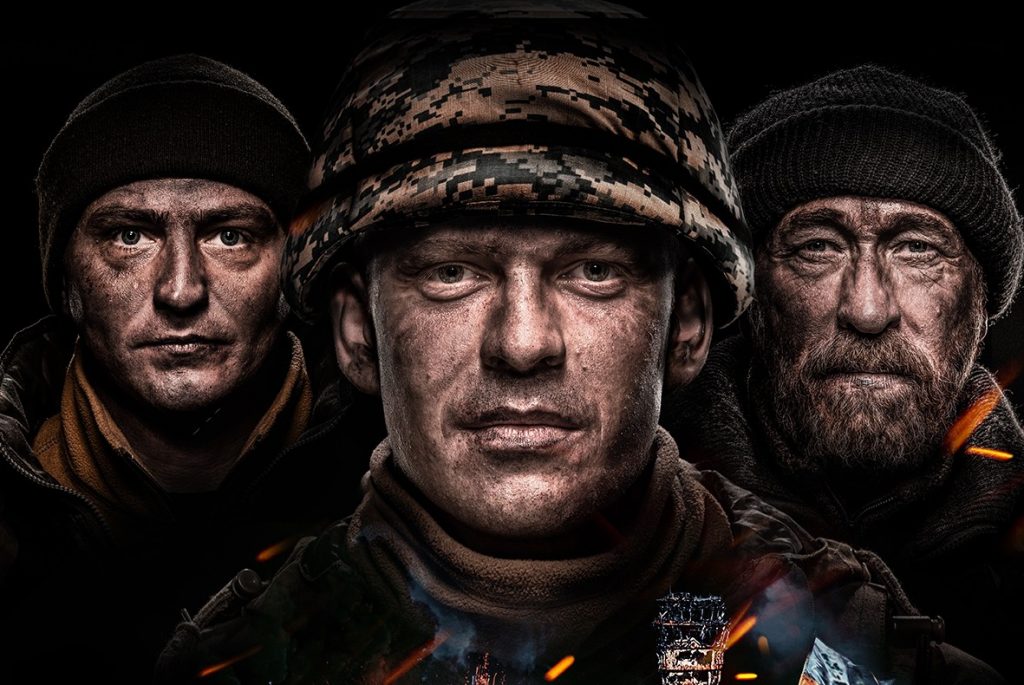
“Cyborgs” by Akhtem Seitablayev
Sports achievements in 2017
Vasyl Lomachenko, Ukrainian holding a WBO super featherweight title in boxing, has been recognized the 2017 world’s best boxer in the ranking by authoritative boxing web sites Fightnews.com and Boxing News 24. Lomachenko was also ranked first in the ESPN’s top 10.
Anna Muzychuk won the European rapid chess championship. Muzychuk is the world champion among the chess players under 20, she holds the champion’s title in blitz chess from 2014 as well as the rapid and blitz chess champion titles from 2016. The athlete risks losing her titles as she has refused to take part in the world championship hosted by Saudi Arabia. Muzychuk says she cannot put up with women being discriminated in the country. “I am going to lose two world champion titles, one by one. Just because I decided not to go to Saudi Arabia. Not to play by someone else’s rules, not to wear abaya, not to be escorted everywhere and altogether not to feel like a second-class human being,” the chess player wrote on Facebook.
Happy despite all odds
It may seem unlikely but 59 percent of Ukrainians were very happy or mostly happy in 2017. Respective results are demonstrated by a public opinion poll held by the Ilko Kucheriv Democratic Initiatives Foundation. The highest percentage of the people who said they were happy was found in western part of the country – 68 percent, however, in all other parts of Ukraine happy people prevailed as well. In central Ukraine, they are 57 percent, in southern – 51 percent, in eastern – 55 percent. The only region where the majority of residents claimed not to have been happy at all or most of the time is Donbas: only 27 percent said they were happy in 2017, 64 percent marked themselves as unhappy. Nevertheless, all the regions demonstrated their solidarity by being confident and hopeful that the next year will be better than the year that is coming to a close.

Happy New Year 2018!


